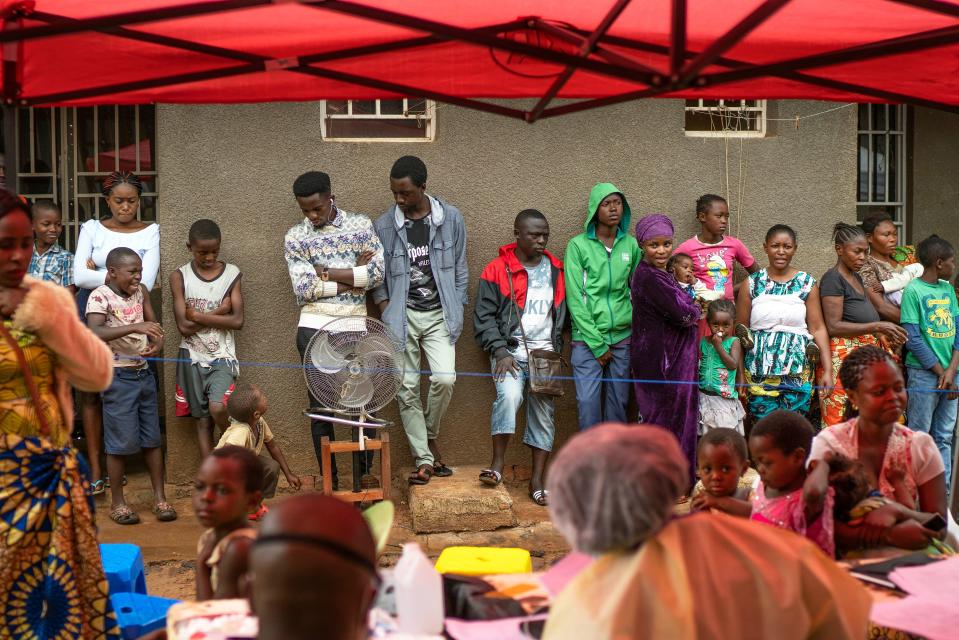For the first time, FDA approves vaccine to prevent deadly Ebola virus
For the first time, the U.S. Food and Drug Administration has approved a vaccine for the prevention of Ebola, the highly contagious virus disease that has killed thousands of people in Africa since the 1970s.
The approval for Ervebo was granted to Merck & Co., the American pharmaceutical company that manufactures the vaccine. It won European Commission approval in November.
The vaccine was designed at Canada’s National Microbiology Laboratory and is administered as a single-dose injection.
Secretary of Health and Human Services Alex Azar called the new vaccine "a triumph of American global health leadership."
“While the risk of Ebola virus disease in the U.S. remains low, the U.S. government remains deeply committed to fighting devastating Ebola outbreaks in Africa, including the current outbreak in the Democratic Republic of the Congo,” said Anna Abram, FDA deputy commissioner for policy, legislation and international affairs.
More than 2,200 people have died from the Zaire strain of the Ebola in the DRC since 2018 in the world’s second largest outbreak of the virus, which can spread rapidly.
Ebola outbreak in Congo: Outbreak declared an international health emergency as virus spreads to city of 2 million

From 2014 to 2016, an outbreak in three West African countries — Guinea, Liberia and Sierra Leone — caused more than 11,000 deaths out of 28,000 cases, the FDA said.
“Ebola virus disease is a rare but severe and often deadly disease that knows no borders," said Peter Marks, director of the FDA’s Center for Biologics Evaluation and Research. "Vaccination is essential to help prevent outbreaks and to stop the Ebola virus from spreading when outbreaks do occur.”
While studies of the vaccine have been underway since 2014, the FDA noted that the World Health Organization began to use it in 2018 in affected areas.
Since the 1970s, outbreaks of the virus have primarily been in sub-Saharan Africa, stemming from human contact with infected wild animals.
It is particularly dangerous for medical personnel and caregivers because it is easily transmitted through direct contact with blood, body fluids and tissues of infected individuals, even from contaminated bedding and clothing.
For infected individuals, fever, fatigue and sore throats are usually followed by vomiting, diarrhea, impaired kidney and liver function and in some cases internal and external bleeding.
More health news: A super-vaccine for the flu is being marketed to people 65 and older
This article originally appeared on USA TODAY: Ebola vaccine: FDA gives first OK for drug to prevent deadly virus

